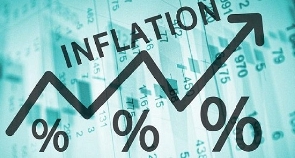Madam Efua Kajabe, a fish monger in Elmina in the Komenda-Edina-Eguafo-Abrem Municipality, expressed uneasiness over spiraling prices of fish lately.
A head pan of fish, she said ranged from GH¢800 to GH¢1,500 depending on the fish caught whereas a box of salmon had moved up from GH¢75 to GH¢80 in nearly a month. “The price of tilapia from the Volta Region goes up every week. Our suppliers have blamed the situation on the high cost of transport and feeding therefore making us to experience a decline in sales and revenues.
“The hikes in price coupled with the rising cost of living has affected the purchasing power of consumers and is affecting our profit margins and ability to save and support our families,” Madam Kajabe.
Madam Sabina Botway, a farmer and vegetable seller at the Kotokoraba market in Cape Coast, said May to July, the price of green pepper increased sharply from GH¢800 to GH¢2,200 per bag.
Mr. Justice Kwadwo Turzan, the Business Development Manager for SMUT Company Limited, producer of pesticides and fertilizers in Cape Coast, said inflation had increased the cost of raw materials, labour, and energy leading to higher production costs and low profits.
Mr. Samuel Andoh, a trader based in Assin Fosu, howled how he had struggled to stay in business due to the high cost of importing and clearing his goods at the Tema Habour. Measuring Price Changes.
A measure of the changes in prices overtime is known as rate of inflation. It is an index number that shows the extent of persistent changes in the prices of goods and services in an economy over a period of time, usually a year.
The Ghana Statistical service the institution of State mandated to compute the rate of inflation in the country publishes the index every month.
On average, 39,461 price quotations are collected every month for the computation of the consumer price index and the rate inflation.
Ghana computed its first Consumer Price Index, of which the inflation rate is a corollary, in 1957, the Statistical Service’s Technical Methodological Manual for the Computation of the Consumer Price Index states.
The country’s latest inflation rate, in July 2023, stood at 43.1 per cent. Inflation rate reached more than 50 per cent in 2022—the highest in decades — as citizens and businesses lament the skyrocketing cost of living and doing business.
Inflation is important for a number of reasons. When the cost of living increases, workers may need to negotiate for higher pay to maintain their standard of living. Understanding inflation helps policymakers and businesses make informed decisions about wage adjustments.
The Bank of Ghana monitors the rate of inflation as one of the most important parameters for maintaining a stable economy and it uses inflation data to implement appropriate policies such as the Monetary Policy Rate to achieve stability.
On Monday, July 24, BoG announced a new policy rate of 30.0 per cent up by 50 basis points from the 29.5 per cent it fixed in earlier May, 2023. Usually the central bank raises the policy rate when inflation rates are rising, with the intent that the high interest rates would curb spending and prevent the economy from overheating.
Conversely, low inflation rates may prompt BoG to lower interest rates to stimulate borrowing and spending.
Another reason why the rate of inflation is important is that it impacts investment planning and decision making. Investors need to consider inflation when estimating future returns and ensuring their investments outpace inflation.
According to experts, periods of high inflation erode the purchasing power of incomes and shrink disposable incomes.
Some Ghanaian Economics experts have offered a number of ways by which citizens—households and firms—could mitigate the impact of high inflation.
Professor Peter Quartey, Director, Institute of Statistical, Social and Economic Research (ISSER) explained, in an interview with Ghana News Ageny (GNA) that, “inflation is more money chasing few goods.”
“What we need is to increase production—once we increase production then we are likely to minimize inflation. That calls for more investment into agriculture and other forms of production,” he said.
Mr. Courage Boti, who is also an Economist, and Research Lead, GCB Capital, advised consumers to, depending on their means and the availability, to store items in a wholesome way. They consumers could buy goods and groceries in bulk, for the week, month or quarter, instead of daily purchases.
“Other than eating from your favourite restaurant, you probably choose a cheaper alternative or cook more from home. Or instead of buying food at the office, you bring food from home as a means of surviving, he advised.
He recommended use of carpooling opportunities rather than driving alone in a car, for savings on fuel costs.
For the producer, Mr. Boti said that they should know the price elasticity of their products or how those products responded to price changes, then they could decide whether to increase the price above what is normal, or to share the cost with the consumers or to shift everything to them.
Where warehousing and other arrangements will not come at a cost, producers can make a lot of orders with their supplier and pay for them in advance.
Dr Patrick Asuming, another Economist, in an interview with Ghana News Agency outlined some coping strategies consumers can adopt in periods of high inflation.
“If you have a house and you can do garden, you should consider it so that you avoid buying so many expensive vegetables and other food stuffs,” he said.
When buying vehicle, one should not just look at the sale price but also the fuel consumption. Going in for a car that has lower fuel consumption can help in the long term.
For producers, Mr. Asuming said, if they sourced their inputs from abroad, they may consider sourcing locally them to avoid higher cost of import.
Taking of loans should be avoided if possible, because in periods of rising inflation, interest rates tend to be higher. Business may have to retain more earnings for reinvestment, he said.
Business News of Saturday, 12 August 2023
Source: GNA













